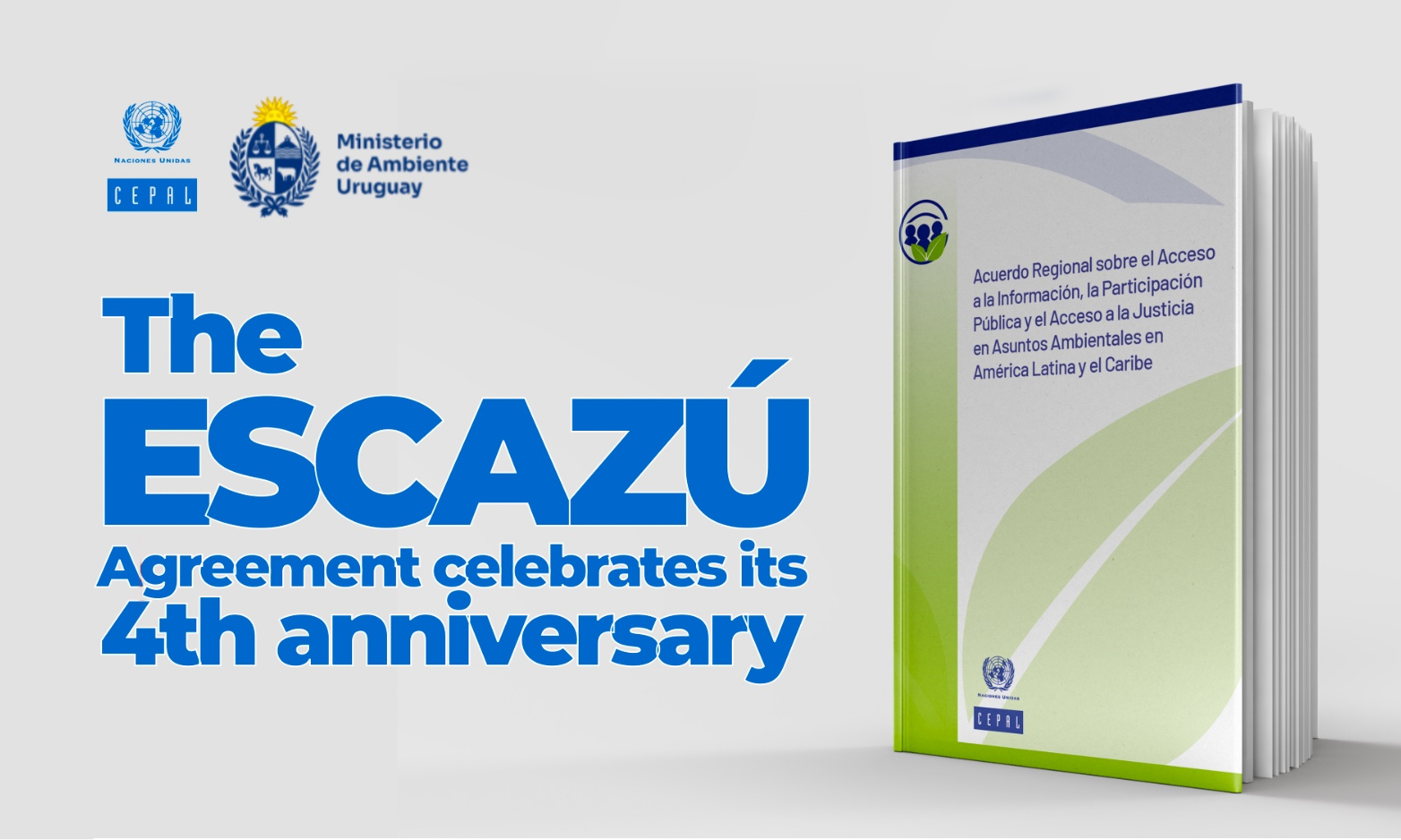International Mother Earth Day: ECLAC and Uruguay Reaffirm their Commitment to Environmental Democracy and Implementation of the Escazú Agreement
Work area(s)
Today marks four years since Latin America and the Caribbean’s first environmental agreement entered into force.

Santiago / Montevideo, April 22, 2025. On the occasion of International Mother Earth Day and the fourth anniversary of the entry into force of the Regional Agreement on Access to Information, Public Participation and Justice in Environmental Matters in Latin America and the Caribbean (Escazú Agreement), the Economic Commission for Latin America and the Caribbean (ECLAC) and the Government of Uruguay – in its capacity as Chair of the Presiding Officers of the Agreement – released a joint open letter today to renew their call for strengthening environmental democracy in the region.
The text – signed by José Manuel Salazar-Xirinachs, ECLAC’s Executive Secretary, and Edgardo Ortuño Silva, Minister for the Environment of Uruguay (the country currently chairing the presiding officers) – emphasizes the historical and political relevance of the Escazú Agreement as a groundbreaking instrument worldwide, because it emerged from the Rio+20 process and also because it is the first international treaty that establishes specific provisions for protecting human rights defenders in environmental matters.
In that vein, it notes that “the Escazú Agreement is more than a treaty, it is a collective achievement by the States of the region and the public, reflecting the spirit of democracy.” The missive adds that it “lays the necessary foundation for promoting social dialogue, planning for the future and formulating transformative policies to meet the challenges of our time.”
Since its adoption, the Agreement has been signed by 24 Latin American and Caribbean countries, and 17 have ratified or acceded to it, becoming States Parties. These countries – which represent about 44% of the region’s population – have made a strong commitment to more informed, participatory and just societies, thereby consolidating environmental governance as the foundation for sustainable development.
In a global context of environmental urgency, in which Latin America and the Caribbean continues to be the most dangerous region in the world for those who defend the environment, the letter values the importance of having legal and political tools that prioritize their protection. In this regard, it points to concrete steps forward such as the adoption of the Action Plan on Human Rights Defenders in Environmental Matters, along with the holding of the Third Annual Forum in Saint Kitts and Nevis, which are key spaces for dialogue between civil society, communities, authorities and international institutions.
In addition, it highlights the Agreement’s role in the context of preparations for the 30th Conference of the Parties (COP 30) to the United Nations Framework Convention on Climate Change, which will take place in Brazil this year, recalling that “caring for those who protect the planet is caring for our common future.”
The letter reiterates the call to countries that have not yet ratified the Escazú Agreement to do so without delay, reaffirming that its implementation is essential for guaranteeing environmental rights, strengthening democratic institutions and protecting Mother Earth.
“This deeply symbolic and momentous day is also an occasion for us to renew our commitment to the Escazú Agreement and its full implementation,” the letter’s signatories conclude.
The full text of the open letter can be read at the following link:
🔗 https://www.cepal.org/sites/default/files/news/files/open-letter-2025-eclac_uy.pdf
Related content
Country(ies)
- Latin America and the Caribbean